Solving the Miami Heat’s Clutch Time Mystery
As the Heat sit in the 1 seed at the All-Star break, many things are apparent about this group. They have great depth. They have a top tier defense all the way around. They have plenty of offensive options.
But the one thing that has shown a need for tweaking is their clutch time offense.
And if you want to know how the Heat should probably treat late-game situations, let’s take a look at this All-Star weekend for example.
As noted previously, they’re the first seed in the East, yet the only player representing them was Jimmy Butler. Part of that was due to many guys being in and out of the lineup, but it’s also a product that they don’t have a strong two than a major fall-off like other teams.
They have four guys who could potentially be in that All-Star game, and they have four guys who could potentially take that final shot late in a game. It’s just all about situation and opportunity.
With that said, I went through all of the Heat’s late-game offensive possessions this season, and some things stuck out. And of course, we must start off with Butler, in an obvious manner that many would want to harp on…
Most nights, the ball is in the hands of Butler as the clock trickles down and the Heat need a bucket. I’m going to highlight next how or when it’s most effective, but it’s been clear that the constant settling for three-point pull-ups, deep fade-aways, or step-back jumpers is the least efficient offense late in games.
For one, if you look at the clips above, there are many parallels across the board. Not only does Butler not look fluid on these specific attempts, but neither do those around him.
When he’s going through the motions of dribbling as the clock hits below five, the other four guys on the court are always standing still, which is the definition of stagnant offense.
Especially when we’re discussing a total movement offense who doesn’t revolve it around one guy or one go-to, isolations should never be the call, unless it’s a clear mismatch or you’re allowing Bam Adebayo to try and drive past his much slower defender.
But when addressing Butler in these positions, it doesn’t mean that final shot has to permanently be passed onto the next guy. It just means don’t shift out of your comfort zone…
And when talking about Butler’s comfort zone, it’s getting to the basket with the possibility of two outcomes: an attempted lay-up or a trip to the line.
We’ve seen that many times this season, as seen in the clips above, and man is that the way to go.
Looking at the first two clips initially against Sacramento, we see him tie the game off a solid drive, then miss the game tying lay-in shortly after, but that’s the shot you live with.
When addressing these plays under a microscope, did you notice any differences between the two? In the first one, we see Omer Yurtseven set a down screen for Butler to go 1-on-1 at the rim with a big, which is essentially what you want in that spot. In the other position, there’s no screen, which ultimately means they can freely send a double at him on the attack.
Big difference.
Then of course the final clip, he ices the game against the Atlanta Hawks with a strong drive and tough finish.
But why is a late-game Butler drive so important? Is it just solely because he has a better chance of knocking it down off a strong attack than a 3 point heave?
Absolutely not.
It’s actually about what follows these late-game drives, especially when that true downhill gravity begins to set in.
Up 3, 9 seconds on the shot clock. Butler refuses the screen, leaving his defender in the dust. Both wing/corner defenders from each side drop down, and it’s a wide open corner triple for PJ Tucker to eventually win them the game.
I feel like I’ve seen that Tucker corner three under a minute to go at least 10 times so far this season, but aside from that, it’s what ties my first two points together. The threes from Butler may be focused on him lacking that consistency at this point in his career, but it’s more about those around him that he impacts.
If they throw length on him where he can’t get to his downhill spots, defer to the next guy. When it’s a winnable match-up, get to the rim. When you can play for the double, hit the open corner shooter.
It sounds simple, but it’s just about eliminating the forceful possessions we’ve seen many times this year that end in a Butler deep heave.
Now, I mentioned earlier that guys have been in and out of the lineup constantly this season, and well, that was a signal to Kyle Lowry early on to enter takeover mode. It wasn’t that he was completely changing games in a scoring fashion, which he did against the Clippers in the 4th and the Hornets recently in OT, but he puts his guys in the right spots late.
Or more importantly, he hits his guys at the right time.
Most of Miami’s late possessions are those slowed down, half-court set-ups in playoff fashion, but Lowry has shown that he won’t roll that way if it’s up to him.
The first clip above is of course sped up because they’re trailing by two possessions with 30 seconds left, but that’s still always going to be his method. He isn’t worried about the clock ever. He wants to make a defense run back with the possibility of them being out of wack, while also setting up early in the clock.
He hits Adebayo against the Lakers, which ends in an and-1.
In the second clip against the Washington Wizards, the Heat are down 3, so he could slow it down to get a good shot, but yet again, that just isn’t Lowry’s style.
He races up the floor, and tracks down Adebayo once again in the middle of the floor as he draws the foul.
This stuff may not seem important, but it absolutely is. The changing of speed that can be utilized between Lowry and Butler is big time, but the issue up to this point is that it feels as if they’ve been taking turns in that way late in games.
If Butler’s slowing it down, Lowry goes possession after possession without being in the primary action. If Lowry speeds it up, he goes on a scoring and passing rampage with Butler playing off the ball, as his defender sags off of him.
If they can find a way to blend the two styles together on the same nights, that’s when they will become elite together when closing games.
Another element of Lowry having the ball in his hands late should depend heavily on specific match-ups. Not if Lowry is being defended by an elite defender, but if there’s an exploitable drop big on the floor that he can attack.
Since well, that’s exactly what he did against this Clippers team, or even the Nets about a week ago.
It’s usually a signal to spam Lowry-Adebayo pick and rolls in this position, but as seen in the first clip, the Clippers switched Zubac off of Adebayo and onto Tucker.
Lowry then has Tucker come set the screen, as he manipulates him from way out. He lets it fly from deep as Zubac closes out, and gets the and-1 three in the process.
Now, in the second clip, Zubac is back on Adebayo. They go with a very high pick and roll here, and that’s the best way to go. It leads to Lowry going 1-on-1 with Zubac on his heels, ending in another and-1 at the rim.
This stuff isn’t just coincidental in a one game sample size. It’s the reads that are made on a gamely basis. There are many reasons why Lowry should get them into their sets late, but when seeing that big to pick on, it should be a pick and roll immediate spam for Lowry to go to work.
He’s currently 15 of 27 this season in clutch time, and neither of those numbers are surprising. He takes what is given to him, so the attempts aren’t as high as Butler. Yet, he takes advantage when the opportunity comes up with a big to attack, leading to 56% shooting in those spots.
When I say Lowry can ‘get them into their sets late,’ this is what I mean.
Looking at this game early in the season against Philly, the guys closing next to Lowry are Duncan Robinson, Gabe Vincent, PJ Tucker, and Dewayne Dedmon.
Only one of those four will be on the floor late once the post-season arrives, yet he doesn’t get away from their base. It’s a Spain pick and roll, as Dedmon screens for Lowry and Vincent sets a down screen on Joel Embiid. He gets to the rim and takes a trip to the line.
Once again, many of this is situational. But it’s clear if you want things organized, find Lowry to put it together.
The other aspect of this is Tyler Herro. When walking away from many of these games recently with Herro out, it strikes me that he will be the one taking many of these shots.
So far this season, he’s 13 of 36 in crunch time. Yet still, I believe he’s their outlet when they need to make a play.
Looking at the clips above, these are two late-game plays from Herro this season which went in different directions. A wild right leaning triple when down 1 against the Pistons sums up Herro’s offense in these positions pretty well, and it feels like they need that type of guy many nights as the shot clock ticks down.
In the second clip, we see Herro miss a good looking floater on a very odd night in Miami against Toronto. The reason I show that isn’t because of the miss, but instead the trust that Erik Spoelstra puts in him to hit big shots. With Butler and Adebayo on the floor, he draws the play up for Herro to end the night early.
Loading...
There’s also another guy that I haven’t had a chance to discuss in this one, and he’s a pretty important piece I’d say: Bam Adebayo.
He’s currently 5 of 13 in clutch situations, and if you want some perspective, Duncan Robinson is 4 of 11 and Gabe Vincent is 5 of 10 in big moments so far this year.
With that said, we’ve seen Adebayo be exponentially more aggressive ever since we flipped into the month of February, which makes me think we could see more stuff run for him late, as he continues to have these 17,18,19 attempt nights.
He’s the piece that could change this entire topic all together. Not that he will be their undeniable closer every night, but as much as I discussed Lowry waiting to attack a mismatch in drop, Bam Adebayo seems to have a mismatch every single game.
No opposing 5 can defend him on a face-up, but it just comes down to him being comfortable enough to make that read and go for the blow-by in big moments.
If that begins to develop, then this team “weakness” becomes less and less of a worrisome topic.
Finally, we have to finish off this discussion of closing games out with Erik Spoelstra’s ATO genius ways.
Something that must be mentioned: there seems to be a major difference in the Heat’s comfort down 1 compared to up 2. When this group is leading coming out of a timeout, they always seem to be in a great spot.
For one, notice how I’ve labeled everything “late-game offense.” The reason is that this Heat defense has been absolutely elite down the stretch of games, and it’s allowed their poorly executed offense to still have chance after chance after chance.
They have the 5th best clutch time defense at the break, posting a 99 defensive rating.
And if they land themselves back on the offensive end with a 1 possession lead, Coach Spo can cook something up to seal it. We’ve seen his two big time ATO plays this season, as he ran the same exact play against Chicago and Charlotte.
Two guys all the way down the floor, one guy flares up to half-court, and the inbound goes to that close wing/corner. Either the guy guarding the inbound falls for the flare, or he doubles on the catch once inbounded. Both end in easy lay-ups to close the game.
As we look across this Heat roster, they could have more answers on the way if everything goes right. If Victor Oladipo comes back completely healthy, he’ll be quite the piece to work into that closing lineup when needing a stop with the 5 man defensive lineup.
But the truth is that there will probably be a revolving door in that 5th spot depending on what they need, and it feels like Herro will get the majority of those reps due to his high level shot making ability. But once they start to pick on him defensively, they’ll have that short stint alternative.
It’ll be interesting to see how they handle lineups, but offensive set-ups are the more important part right now. And as I portrayed in this piece, there isn’t just one single option when things start moving quickly down the strtech.
For business window graphics, interior office signage, custom flags, custom banners and sign repair, reach out to SignsBrowardFortLauderdale.
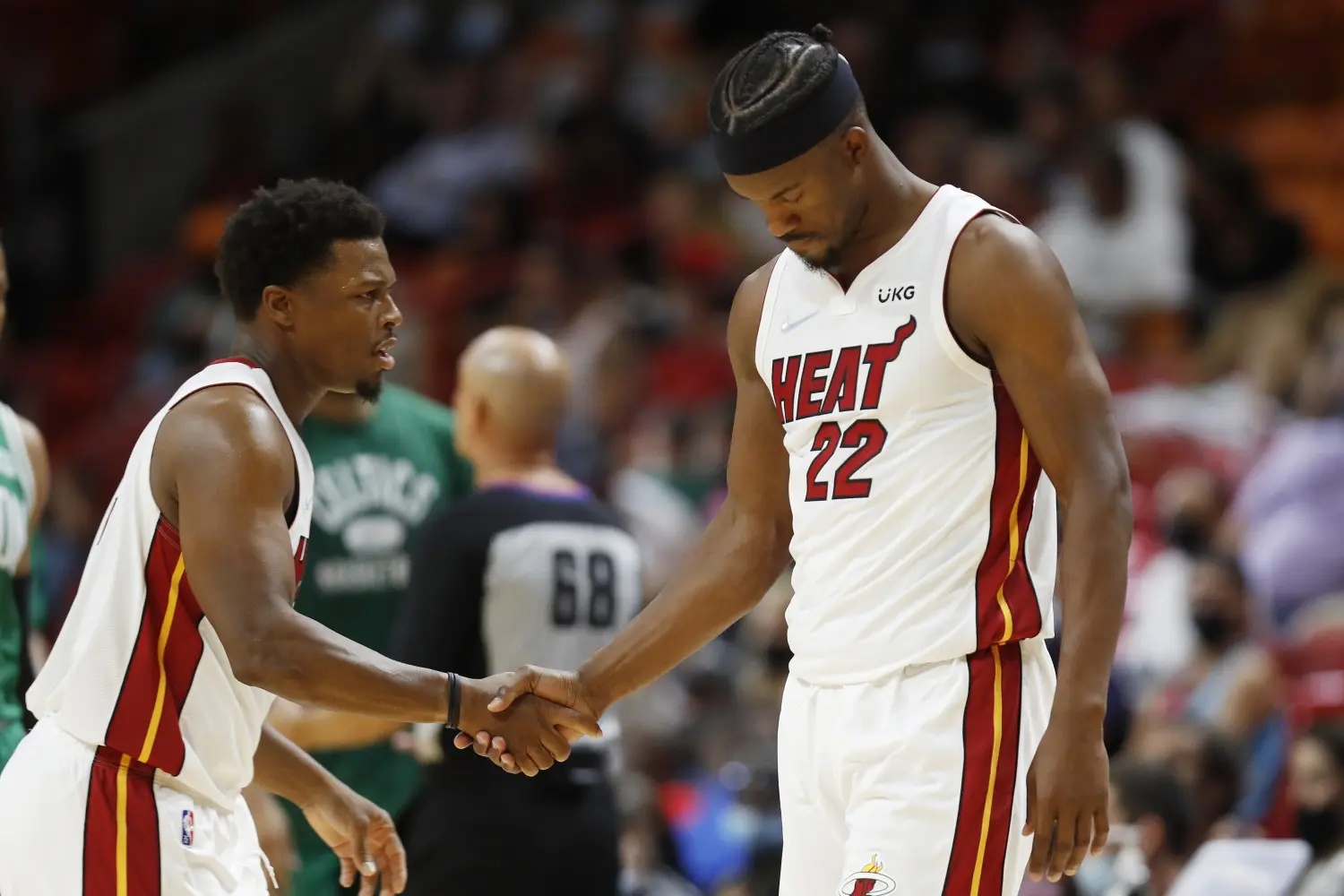
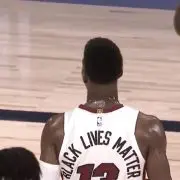
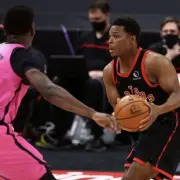
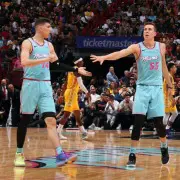
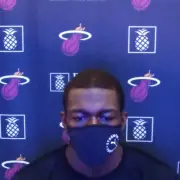
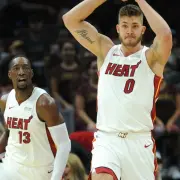
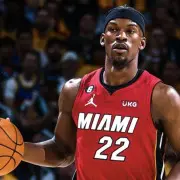


Leave a Reply
Want to join the discussion?Feel free to contribute!